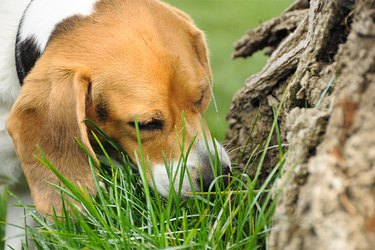


And especially things in the upper GI tract, the throat and the stomach tend to be associated with eating or licking non-food items, like dogs licking the rug,” she explained. “They can have ulcers even they can have inflammation anywhere. Houpt said if a dog is eating grass and vomiting constantly, the dog most likely has GI problems and it would be time to take them to the veterinarian. Some dogs eat grass because something is upsetting their stomach such as gas or bloat, and somehow the grass provides enough of a tickling sensation in the. When to go to the vetīut at what point does your dog’s habit become concerning? What's a seller to do? Your sexual fantasies may be more problematic than you realize Obesity was long considered a personal failing. I thought I ruined an LGBTQ wedding anniversary but instead was reminded that 'love is love' Homebuyers are rejecting more offers than ever for 'tiny' issues. They're winning in white counties by running on race. Speed limits in the ocean? Massive ships are killing endangered whales each year. “If it really wants to figure out who passed through here or who urinated here, having the grass in their mouth will allow them to perceive that much better,” she said. Dogs have an organ between the nose and mouth called the vomeronasal organ, which is their “sixth sense,” according to Houpt. She added that in some cases, dogs might not even be eating grass at all, but mouthing at it because of interesting smells. However, most grass-eating dogs are not sick beforehand and do not vomit afterwards. Pica is defined as the ingestion of non-food items such as grass, plants, rocks, feces, etc. “Their official diets are not getting that, so there may be some natural tendency to eat grass." There are many possible explanations as to why dogs eat grass including gastrointestinal upset. It might also eat what's in the rabbit's intestines, which is grass," Houpt said.

"Probably in the wild, the dog would kill the rabbit, it would eat the rabbit. Puppies of mothers who ate grass are more likely to eat grass, she added. Katherine Houpt, James Law Professor Emeritus at Cornell, said eating grass could be a learned behavior. Pica may have an underlying medical cause or it may be behavioral or psychological, says Dr. This disorder consists of the compulsive eating of non-food items, like grass or rocks, according to Great Pet Care.ĭr. Dogs with pica might be obsessed with eating one type of non-food item or they might eat anything they can get their paws on. Dogs who eat grass might have a condition called pica.


 0 kommentar(er)
0 kommentar(er)
